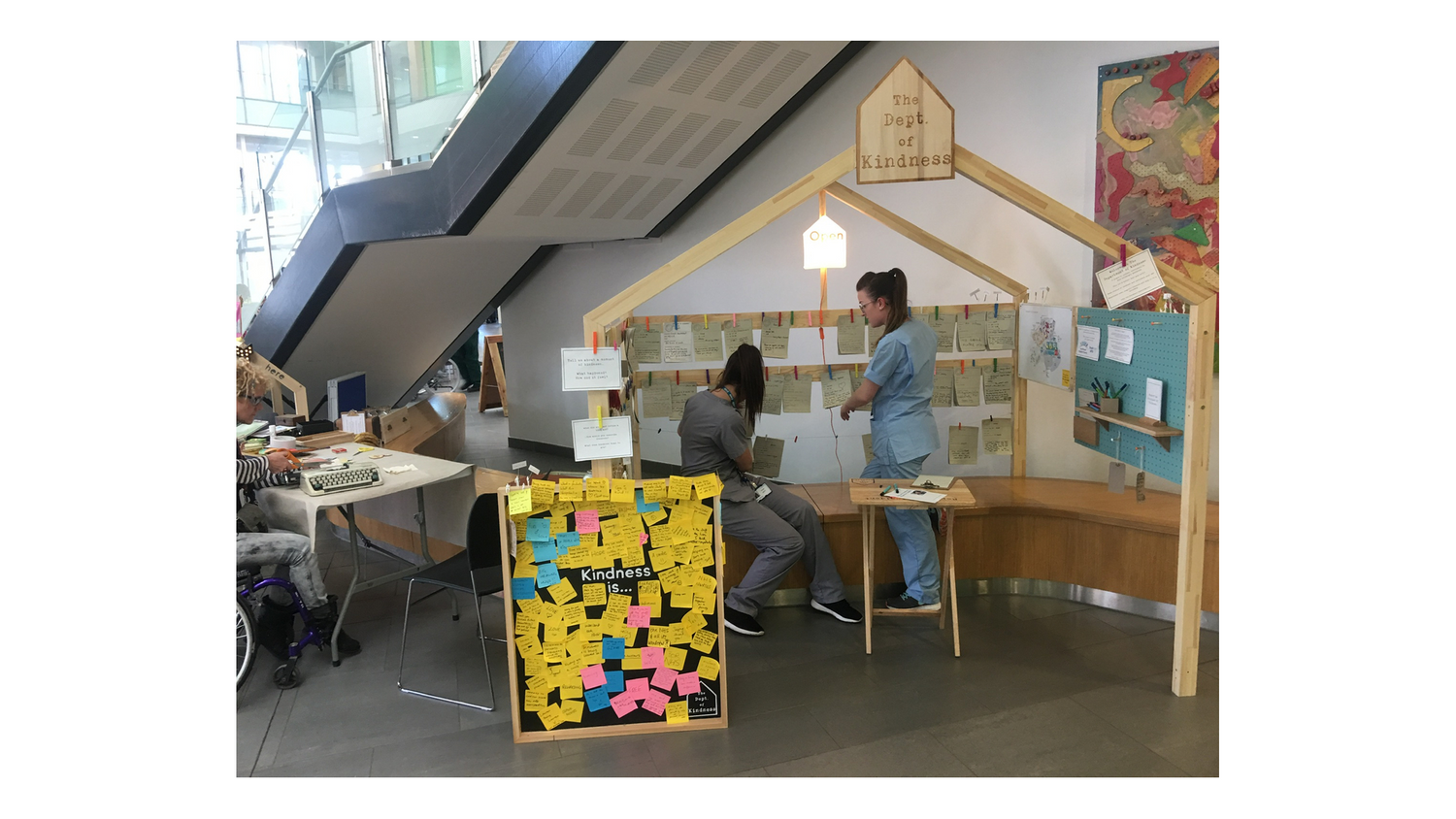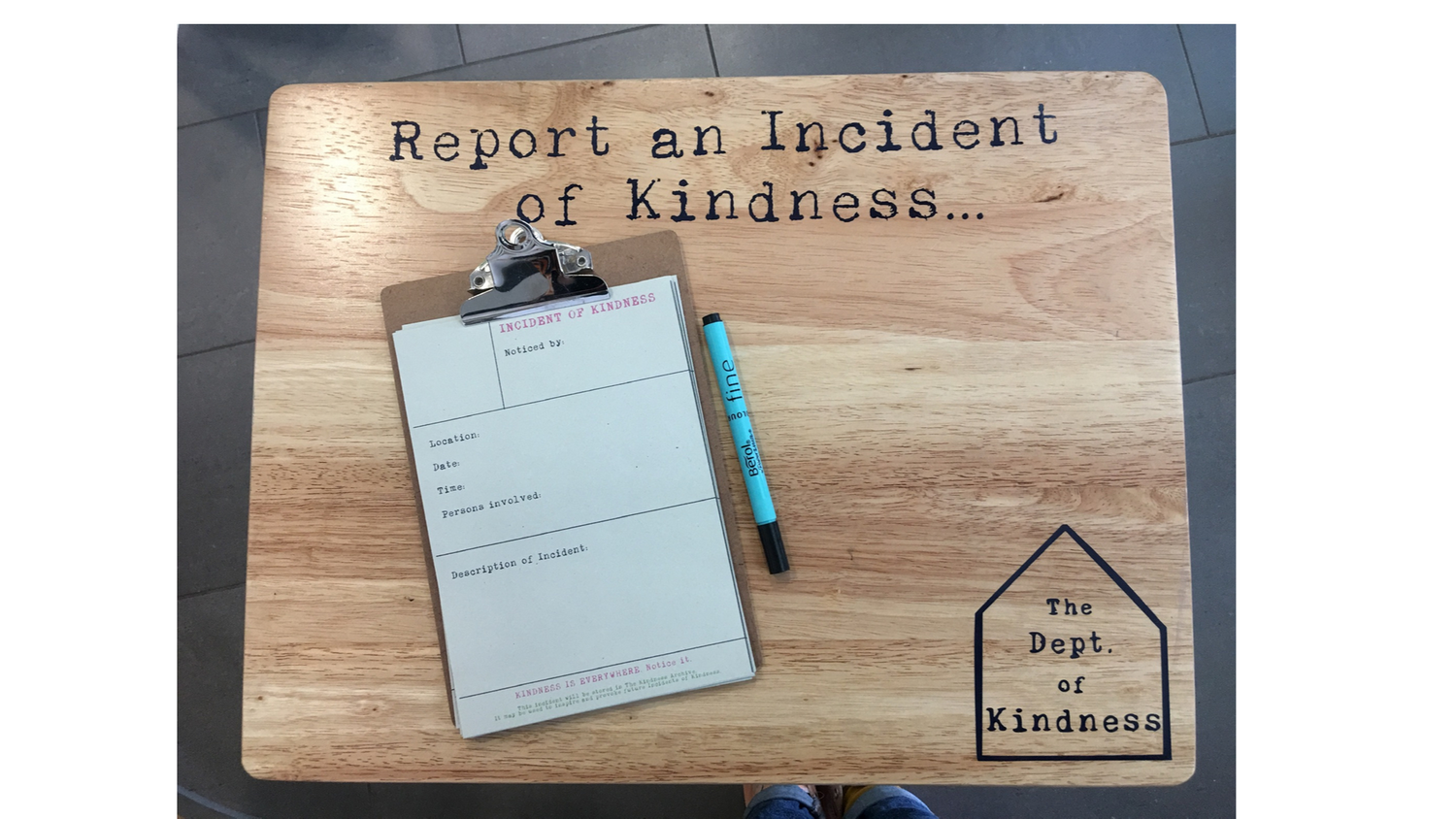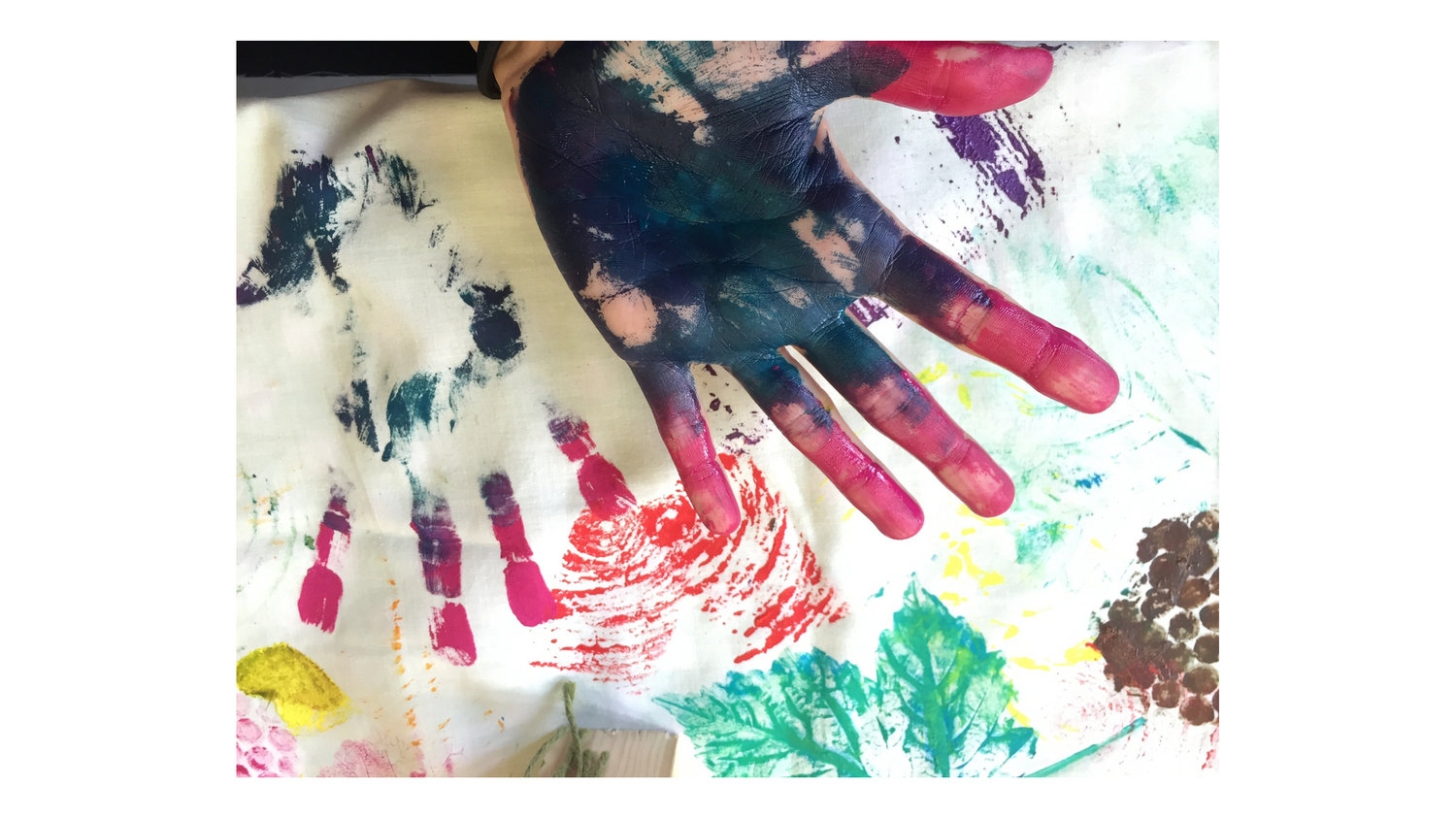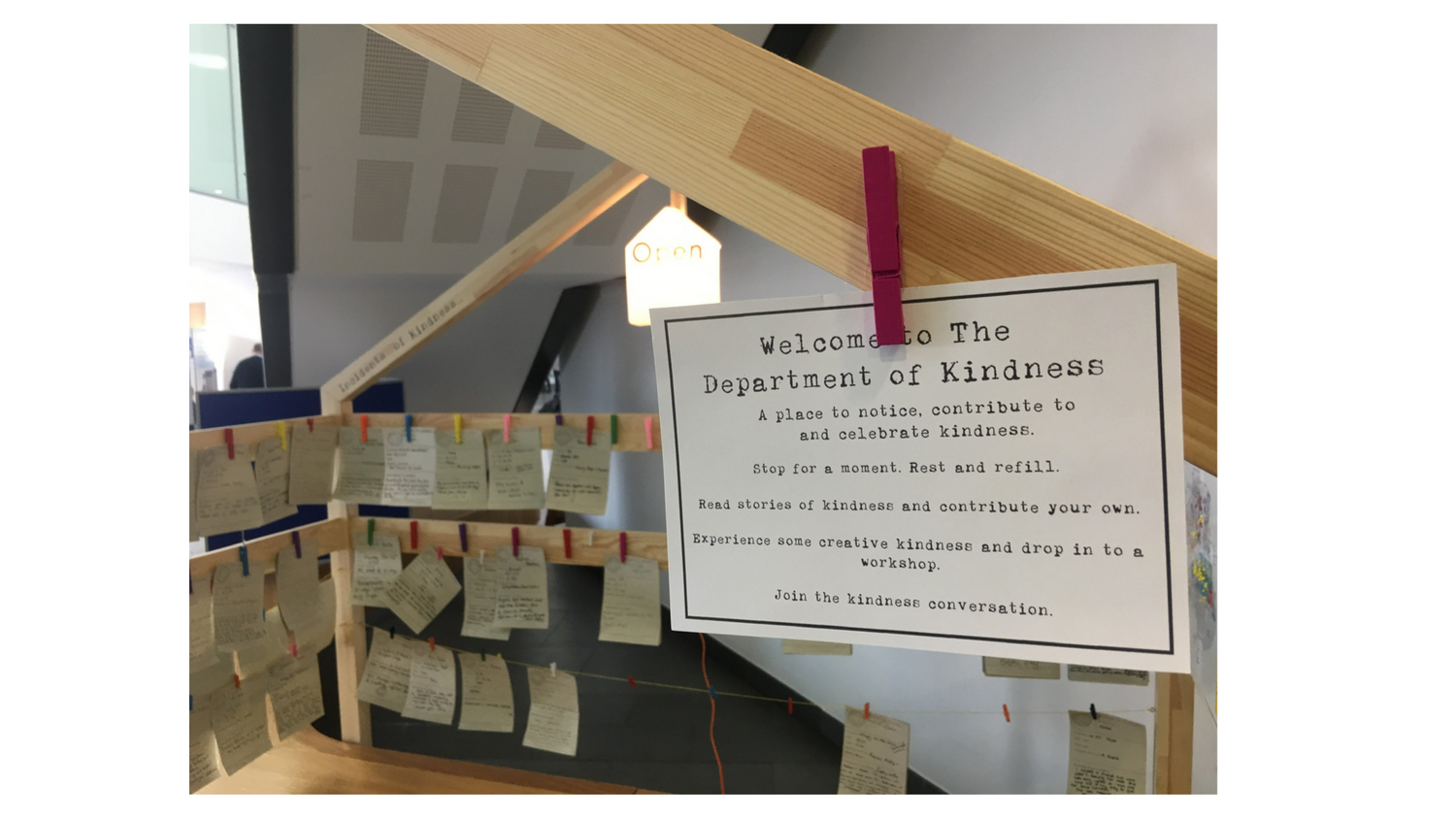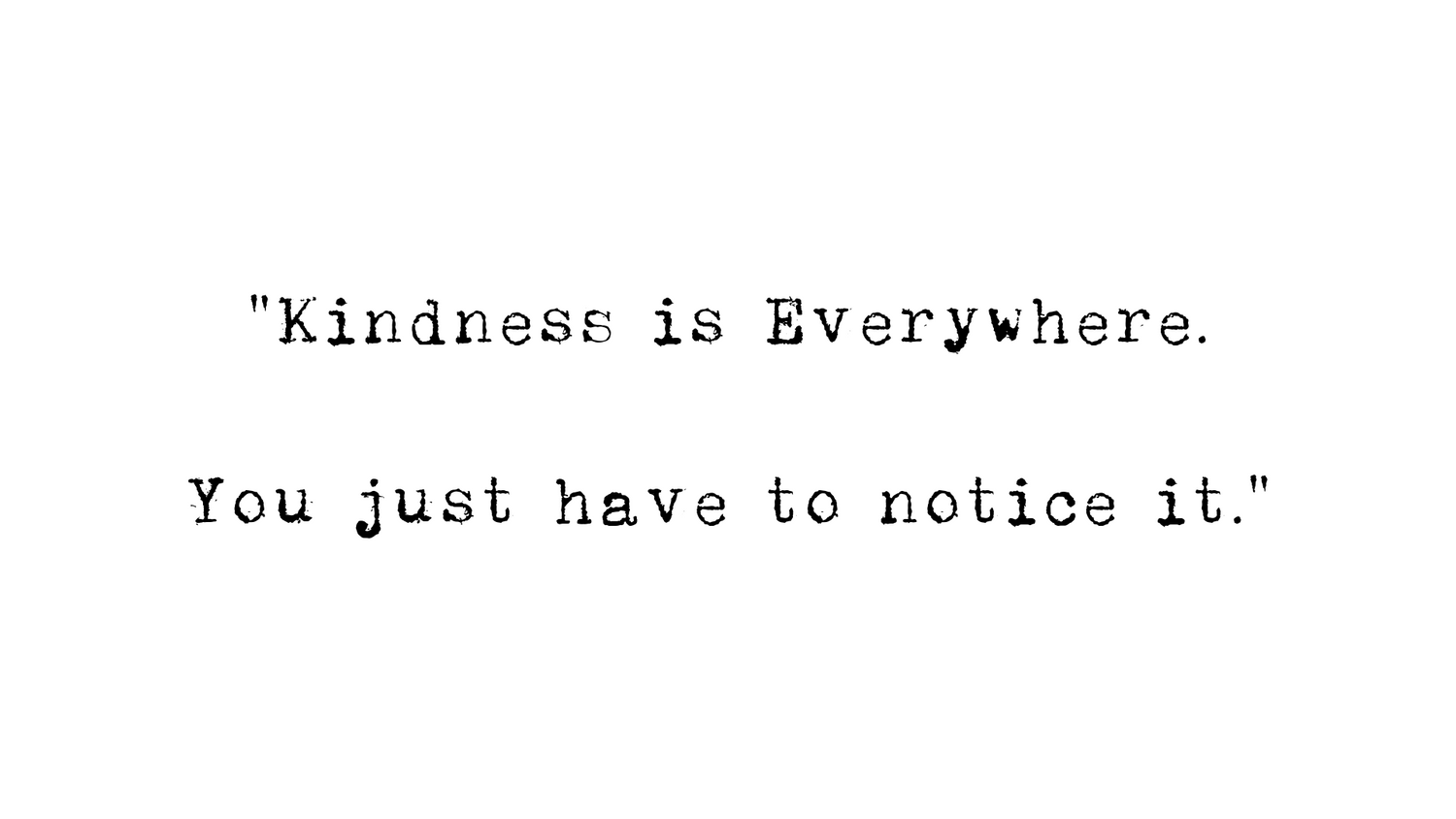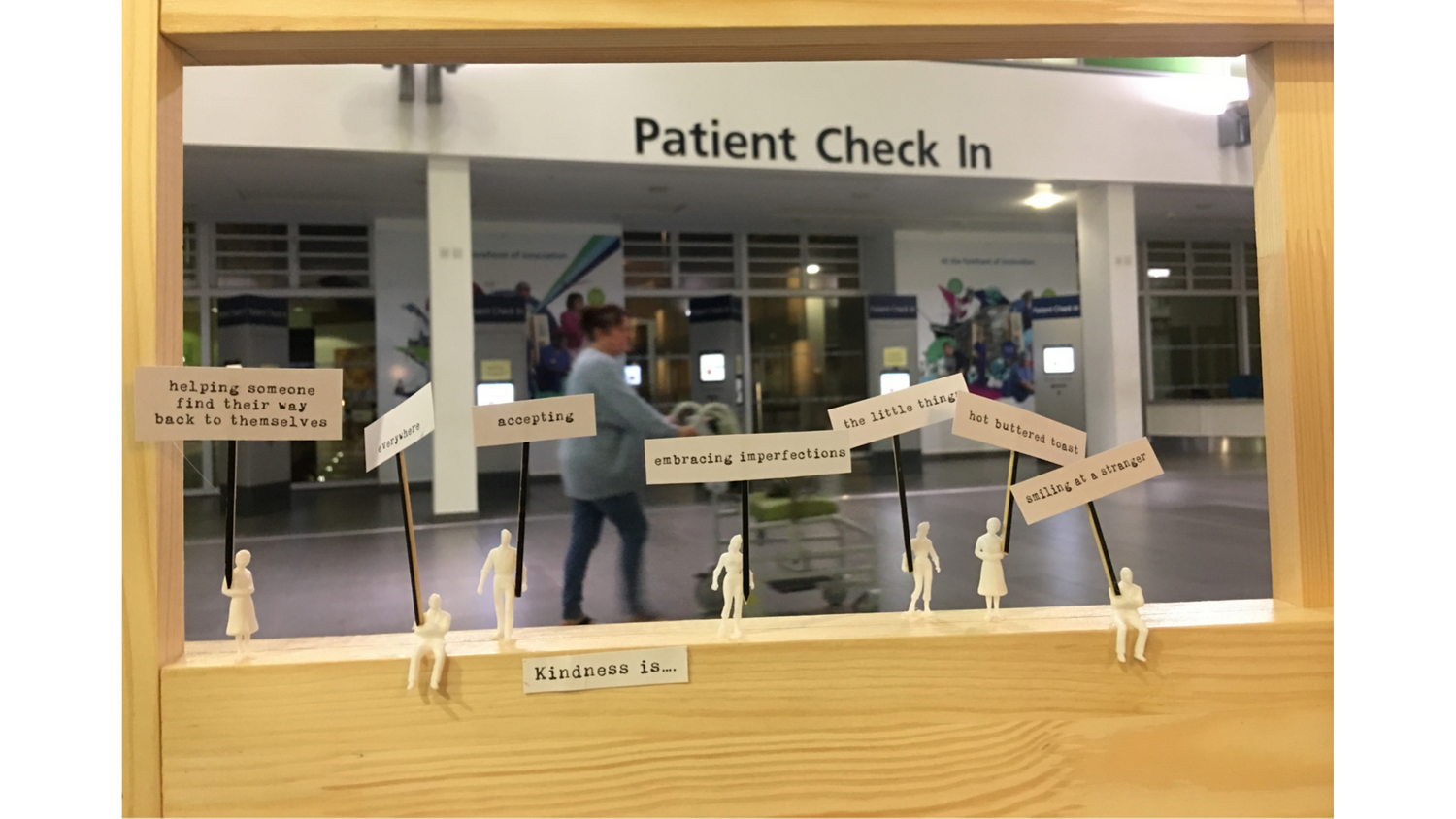Inspiring Kindness, Compassion and Difficult Conversations
Ali Brown is an artist based in Bristol who creates projects and initiatives that help people in hospitals, schools, and community spaces. Projects of hers include the Cabinet of Compassion which is mobile trailer that provides a safe space for people to emotionally connect through creativity and The Department of Kindness which helps hospital patients and staff recognise others for the positive kind actions.
In Ali’s talk, she explored how creativity can be used to have difficult conversations, how small ideas can have big impacts on people’s lives and some of the most moving stories that have come about in response to her work.
“Creativity is innate but unique. Creativity is needed. People are always told how to think and what to do. Creativity is breaking those rules”
💡Key Highlights
0:30 Creative projects to help bring people and their wellbeing.
0:44 Delivers projects in the NHS, care homes, schools and more. Youngest person Ali’s worked with is 4, oldest is 98.
Creativity is a really good tool for having difficult conversations.
1:10 Ali believes creativity is innate but unique. Creativity is needed. People are always told how to think and what to do. Creativity is breaking those rules.
1:50 A patient said to her “Kindness is everywhere, you just have to notice it.”
2:20 About The Department of Kindness. Ali would notice small kind acts that would completely change the course of people’s day. She wanted to celebrate that.
3:10 750 people visiting the Department of Kindness in the month it was there.
3:15 Incident report station where you report an instance of kindness. They did pop-up workshops to draw people in and engage.
3:45 Collected people’s definition of kindness.
4:10 Wanted to make the invisible people who are being kind, visible.
4:30 Kindness in the NHS, “It meant to much to me, sometimes you feel very alone”. “To the healthcare assistant, thank you for your time and patience on me when I was in my darkest place. Definitely not a woman I’ll ever forget. If you’re ever in a dark place yourself, remember you saved my life” -
5:40 Spreading kindness further with blue plaques around the hospital.
“To the healthcare assistant, thank you for your time and patience with me when I was in my darkest place. Definitely not a woman I’ll ever forget. If you’re ever in a dark place yourself, remember you saved my life”
6:30 Working on a shared goal & doing something tactile that distracts the eyes and wider senses means hard conversations happen naturally. Medal of Kindness with secret pockets where you can put a message in about how you’re going to be kind to yourself.
7:15 It’s easier to kind to other people than to yourself. The main reason that people said was regarding permission. Permission to take care of yourself.
7:50 Led to the creation of Cabinet of Compassion. It traveled around. Permission slips. You write one for someone else and receive one from another. Easier to do things if others tell you to do it.
9:00 Recordings of kids giving pep talks. Intergenerational element. People found it easier to do things based on what a child says.
10:30 Touring around schools.
11:10 They’d start sessions by asking 2 things “How do I feel? What do I need?” and focused on breathing.
11:40 Real-world and measurable impact. The workshops helped the headteacher create a self-care routine for herself and the rest of the staff.
12:20 Ali does permission slips every Sunday. Consistency really helps.
14:00 Got an email from a patient from South Mead hospital - Ali reads out.
15:00 Small actions can have big effects.
“Start by asking two things ‘How do I feel? What do I need?’ and focus on breathing.”
💡 Key Lessons
Creativity can turn dull procedures into engaging experiences. In this case transforming people’s moods and showcasing the wonders of humanity.
We often need reminders and permission to look after ourselves. We’re often good at giving advice to others, but prioritising our wellbeing also impacts other people.
For artists with lots of ideas, consistency is key. Commuting to a regular routine helps build creative discipline and complete projects.
💭 Coaching Questions
How can you use your creativity to re-imagine a task you find draining?
Could a weekly routine help you commit to making an idea a reality over a long period of time?
What self-care advice are you giving to others, that you should really apply yourself?


